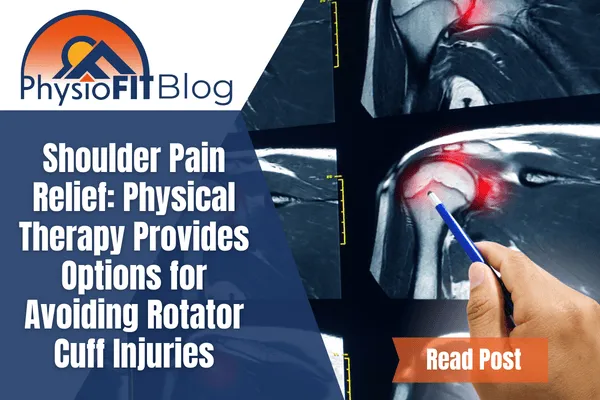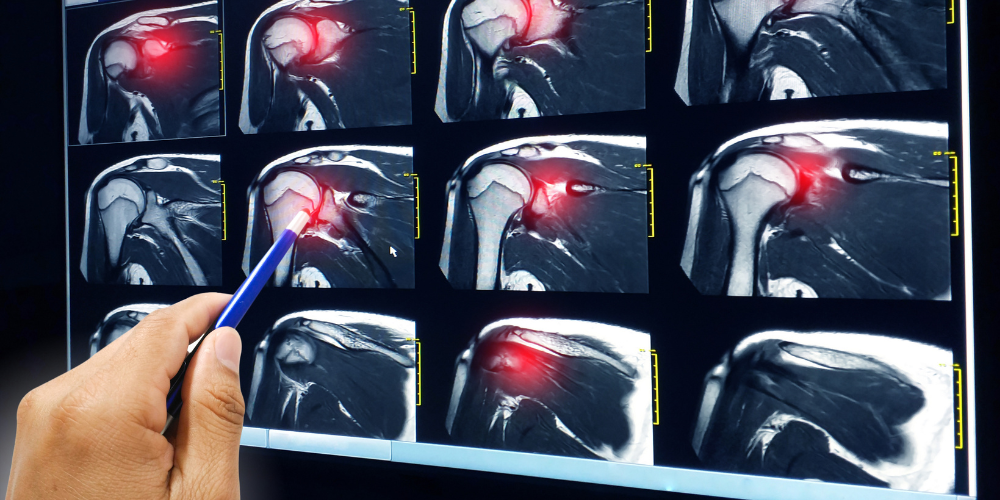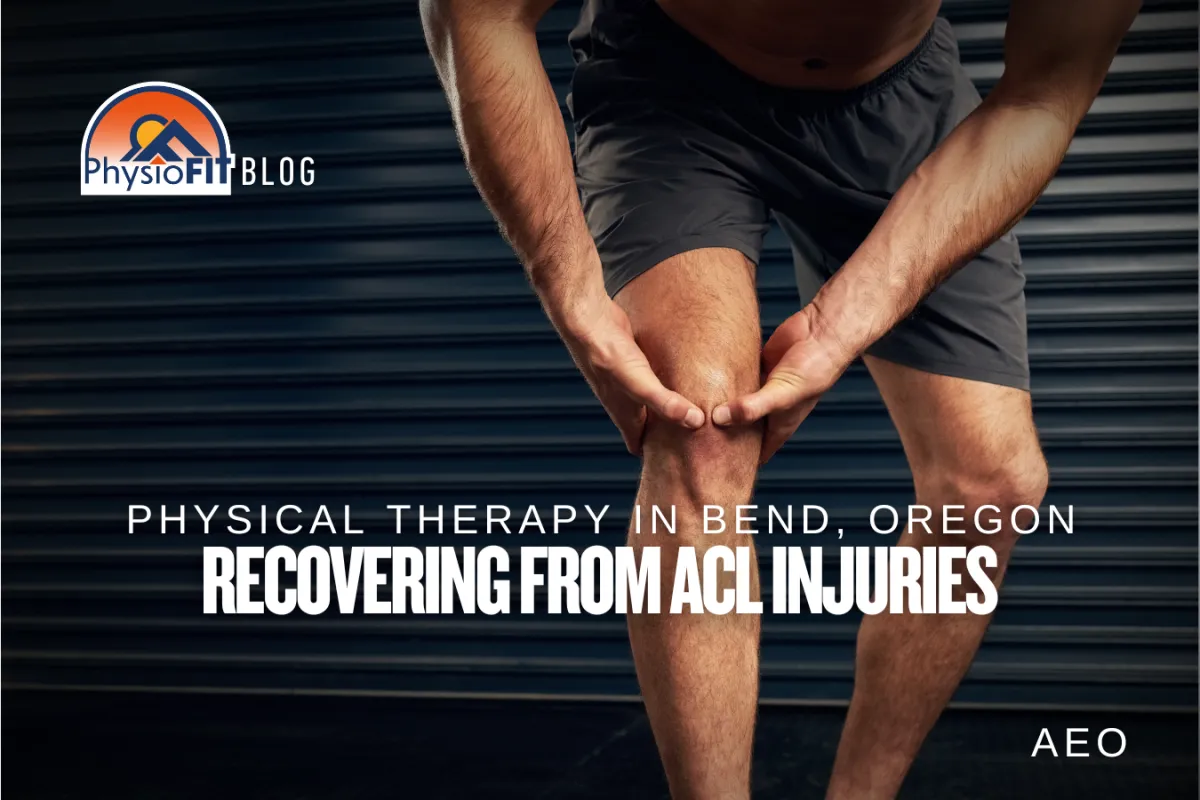
June 07, 2023 • 7 min read
Understanding Shoulder Pain and Rotator Cuff Injuries
Please Note: The information provided on our website is intended for general education and is not a substitute for professional medical advice. Each individual’s situation and body are different. Therefore, what may work for one person may not work for another. We care about your well-being and advise you to reach out to us to discuss your specific needs before implementing any advice from our website.
Introduction
Shoulder pain is a common complaint that can stem from various causes, one of the most prevalent being rotator cuff injuries. These injuries can significantly impact a person’s quality of life, making daily tasks challenging and limiting physical activities. In Bend Oregon, the PhysioFIT physical therapy clinic is dedicated to helping individuals manage shoulder pain and prevent rotator cuff injuries through our “fitness-centric” physical therapy approach.
Understanding Shoulder Pain
Shoulder pain can arise from various conditions, including arthritis, bursitis, and tendonitis. However, one of the most common sources of shoulder pain is overuse or some trauma leading to a rotator cuff injury. The rotator cuff is a group of muscles that stabilize the shoulder joint by maintaining proper congruence and motion between the scapula and humerus. When these tissues are damaged, it can result in severe pain, weakness, and limited mobility.
According to Healthline, shoulder pain affects millions of Americans each year, with rotator cuff injuries accounting for a significant portion of these cases. These injuries can severely impact an individual’s ability to perform daily activities and maintain an active lifestyle.

What are Rotator Cuff Injuries?
Rotator cuff injuries typically involve damage to the tendons, which can occur due to acute trauma, such as a fall, or chronic wear and tear, often resulting from repetitive overhead motions.
According to the Mayo Clinic, rotator cuff injuries are common and increase with age. These injuries can cause a dull ache in the shoulder, disturb sleep, and make it difficult to perform activities that involve lifting the arm.
At PhysioFIT, we frequently treat patients with rotator cuff injuries providing pain relief as soon as possible. Our team of physical therapists uses a variety of techniques to alleviate pain, improve mobility, and strengthen the shoulder muscles to prevent further injury.
The Role of Physical Therapy in Shoulder Health
Physical therapy plays a crucial role in managing shoulder pain and preventing rotator cuff injuries. Physical therapists can provide personalized treatment plans that include pain management strategies, strengthening exercises, and education on how to avoid or improve the mechanics of movements that are associated with injury. It’s important to get a proper evaluation from a professional, so as not to further aggravate any potential injury that may be present.
At PhysioFIT, our physical therapists are experts in shoulder health and we don’t want to prevent you from enjoying all that Central Oregon has to offer any longer than you have to. So we work closely with our patients to understand their specific needs and goals, and we develop customized treatment plans that aim to alleviate pain, improve function, and prevent future injuries. Our approach to treatment is holistic with a “fitness-centric” approach, considering the overall health and well-being of our patients in addition to their shoulder health.
Through physical therapy, individuals suffering from shoulder pain can gain relief and learn strategies to prevent future injuries. At our physical therapy clinic we are committed to helping our patients achieve optimal shoulder health and an improved quality of life. We won’t just mask the symptoms or put you through the motions, we want you back in action as soon as possible, equipt with the tools to prevent further injuries in the future.
Shoulder Pain and Rotator Cuff Injury Prevention
Prevalence of Rotator Cuff Injuries
Rotator cuff injuries are a common cause of shoulder pain and disability among adults. In fact, almost 2 million people in the United States visit their doctors each year due to rotator cuff injuries. These injuries can significantly weaken your shoulder, making many daily activities, like combing your hair or getting dressed, painful and difficult to do.
Rotator cuff injuries are more common in the dominant arm — the arm you prefer to use for most tasks. If you have a degenerative tear in one shoulder, there is a greater likelihood of a rotator cuff tear in the opposite shoulder — even if you have no pain in that shoulder.

Symptoms and Diagnosis of Rotator Cuff Injuries
The most common symptoms of a rotator cuff tear include:
- Pain at rest and at night, particularly if lying on the affected shoulder
- Pain when lifting and lowering your arm or with specific movements
- Weakness when lifting or rotating your arm
- Crepitus, or a crackling sensation, when moving your shoulder in certain positions
Tears that happen suddenly, such as from a fall, usually cause intense pain. There may be a snapping sensation and immediate weakness in your upper arm. Tears that develop slowly due to overuse may also cause pain and arm weakness. You may have pain in the shoulder when you lift your arm, or pain that moves down your arm.
To diagnose a rotator cuff injury, your doctor should discuss your symptoms and medical history, then examine your shoulder. They may also examine your neck to make sure that it is not the true source of your pain, and to rule out other conditions.
Imaging tests, such as X-rays or magnetic resonance imaging (MRI), may be used to confirm the diagnosis. An MRI can show the rotator cuff tear, as well as where the tear is located within the tendon and the size of the tear.
Treatment Options for Rotator Cuff Injuries
The goal of any treatment is to reduce pain and restore function, we can do this in a multitude of ways, including manual therapy. There are several treatment options for a rotator cuff tear, and the best option is different for every person. In planning your treatment, your doctor or health professional like a physical therapist will consider your age, your activity level, your general health, the type of tear you have, as well as functional impairments.
Nonsurgical treatment options may include rest, activity modification, nonsteroidal anti-inflammatory drugs (NSAIDs), strengthening exercises and physical therapy, and steroid injections.
Physical therapy, such as the services provided by PhysioFIT, a leading provider of physical therapy in Bend, Oregon, can be particularly beneficial. Specific exercises can restore movement and strengthen your shoulder, relieving pain and preventing further injury.
In some cases, surgery may be recommended, particularly if your pain and function does not improve with nonsurgical methods or if you are very active and use your arms for overhead work or sports.
Preventing Rotator Cuff Injuries
Preventing rotator cuff injuries involves maintaining shoulder health and strength. This can be achieved through physical therapy techniques and proper warm-up before physical activities.
Physical therapy, such as the services we provide at PhysioFIT, can help to promote function, mobility, and range of motion, reducing the risk of rotator cuff injuries. Regular shoulder exercises can improve flexibility and endurance, further reducing the risk of injury.
Conclusion
Rotator cuff injuries are a common cause of shoulder pain and can significantly impact daily life. However, with the right treatment and preventive measures, it’s possible to manage the pain and prevent further injuries. Physical therapy, in particular, plays a crucial role in both treatment and prevention.
At PhysioFIT, we are committed to helping our clients optimize their shoulder health and prevent rotator cuff injuries. Our team of experienced physical therapists in Bend, Oregon, provide personalized treatment plans tailored to each individual’s needs. We believe that it’s easier to stay healthy than regain lost capacity post-injury, and we’re here to guide you every step of the way.
Remember, it’s important to not just seek medical advice or physical therapy care if you’re experiencing shoulder pain or suspect a rotator cuff injury. Prevention or early treatment can prevent your symptoms from getting worse, get you back to your normal routine quicker, or even prevent the injury from occurring in the first place.
Please Note: It’s important to note that any exercises that are shared should be performed under the guidance of a qualified physical therapist in bend to ensure correct technique and to prevent injuries. A physical therapist can provide a customized exercise program based on the individual’s fitness level, goals, and any existing injuries or conditions. If you’d like to explore this more or would like to schedule a time with a physical therapist, contact us at PhysioFITBend.com



